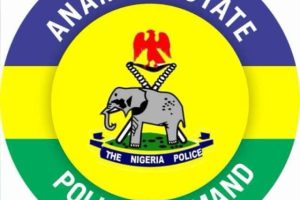The President-elect, Bola Tinubu, has queried the legal
competence of the petition the Peoples Democratic Party, PDP, and its
candidate, Atiku Abubakar, filed to nullify his election.
Tinubu, in a preliminary objection he entered before the
Presidential Election Petition Court, PEPC, in Abuja, described the PDP
candidate as a consistent serial loser that had since 1993, crisscrossed
different political parties, in search of power.
The President-elect said he would during the hearing of the
petition, lead evidence before the court to show how Atiku’s emergence as a
candidate in the presidential election that held on February 25, led to the
“balkanisation” of the opposition PDP.
According to him; “The 1st petitioner (Atiku) has been
consistently contesting and losing successive presidential elections in Nigeria
since 1993, whether at the party primary election level or at the general
election; including 1993, when he lost the Social Democratic Party (SDP)
primary election to the late Chief M.K.O Abiola; 2007, when he lost the
presidential election to the late President Umaru Musa Yar’Adua; 2011, when he lost the Peoples Democratic Party presidential primary
election to President Goodluck Jonathan; 2015, when he lost the APC primary
election to President Muhammadu Buhari; in 2019, when he lost the presidential
election to President Muhammadu Buhari; and now, 2023, when he has again, lost
the presidential election to the respondent.
“Further to (iv) supra, it was/is not a surprise and/or not
by accident that the electorate rejected the 1st petitioner at the polls of the
presidential election held on 25th February, 2023”.
Insisting that he was validly returned as winner of the
presidential election by the Independent National Electoral Commission, INEC,
Tinubu told the court that unlike Atiku, he has been “a most consistent
politician, who has not shifted political tendency and alignment”.
“The 1st petitioner has consistently crisscrossed different
political parties of Nigeria, including being a member of the PDP, before
joining the Action Congress in 2007, when he was the presidential candidate of
the party; returned to the PDP thereafter, before joining the 3rd respondent in
2015, where he contested the primary election with President Muhammadu Buhari,
before returning to the PDP in 2019 to emerge as its presidential candidate.
“Arising from paragraph 9 supra, while the respondent has
always carried his supporters along and increased his political followership,
the 1st petitioner has lost most of his followers in the process of moving from
one political party to the other.
“The emergence of the 1st petitioner as the presidential
candidate of the 2nd petitioner led to irreconcilable hostilities within the
ranks of the 2nd petitioner, causing the emergence of a group of Governors
known all over the country as the G-5 Governors- Rivers, Oyo, Enugu, Abia and
Benue, who opposed the 1st petitioner and vowed to mobilise their people
against him. The respondent shall at the trial, found and rely on copies of
newspaper publications and social media contents in respect of the said
subject.
“While the 1st petitioner contested the presidential
election of 2019 with President Muhammadu Buhari under a fairly cohesive
Peoples Democratic Party with Peter Gregory Obi as his running mate and Rabiu
Musa Kwankwaso as one of his supporters, the same Peter Gregory Obi broke away
from the PDP to join the Labour Party to contest the presidential election of
25th February 2023, while Rabiu Musa Kwankwaso also broke away from PDP to
contest the presidential election on the ticket of the New Nigeria People’s
Party.
“While Peter Obi polled a total number of 6,101,533, Rabiu
Musa Kwankwaso polled 1,496,687.
“Before the balkanisation of the 2nd petitioner, the
South-Eastern States of Enugu, Abia, Imo, Ebonyi and Anambra used to be
controlled by the 2nd petitioner, but at the presidential election of 25th
February 2023, they all went the way of Labour Party”.
Tinubu argued that his party, the All Progressives Congress,
APC, is a national party, popular amongst Nigerians, cutting across all
divides.
He said the PDP, on the other hand, had in recent years,
“been engrossed in intra-party irreconcilable feuds and infighting, both in
relation to its national offices and officers, as well as the Convention which
produced the 1st petitioner as its presidential candidate”.
“Presently (and/or) from 2015 till date, the 3rd respondent
has been the political party in power in Nigeria; it presently has the
President of the country, 20 State Governors, 64 Senators, 217 members of the
House of Representatives and about 600 members of the States’ Houses of Assembly,
nationwide; while the 2nd petitioner has just 14 State Governors, 39 Senators and
111 Members of the House of Representatives.
“In the election that was held on 25th February, 2023 and
18th March, 2023, while the 3rd respondent produced 15 Governors, as against 9
of the 2nd petitioner, it also produced 64 Senators, as against 33 produced by
the 2nd petitioner, and 217 Representatives, as against 104 produced by the 2nd
petitioner.
“The respondent will lead evidence to prove and demonstrate
that from 1999 till date, it has been the consistent pattern that the political
party who controlled/controls most of the States, as well as the National and
State Assemblies, produced/produce the President, and that the election of 25th
February 2023 was no exception.
“This is asides from the misfortune and calamities that have
befallen the 2nd petitioner in recent years, even till after the election,
where they had to sack their National Chairman. The respondent shall find and
rely on documents and newspaper reports of the various squabbles in the 2nd
petitioner.
“In reaction to paragraphs 3 and 4 of the petition, the
respondent asserts that the 2nd petitioner has lost its relevance and
popularity within its own ranks and amongst Nigerians leading to abysmal
electoral performance.
“Therefore, at the National Assembly election conducted on
the same day as the 2023 presidential election, the 2nd petitioner only won
thirty-three (33) out of the One Hundred and Nine (109) Senatorial seats and
about 100 out of the Three Hundred and Sixty (360) seats in the House of
Representatives.
“Further to 21 above, the fortune of the 2nd petitioner has
also dwindled with regard to the number of governors produced by it.
“In the 2023 election cycle, the said 2nd petitioner was
only able to win 9 governorship seats. The 2nd petitioner’s electoral
reputation is contrary to that of the 3rd respondent which has, in the past
three election cycles in Nigeria, apart from winning the presidential elections
also maintained an emphatic majority in both chambers of the National Assembly
as well as a majority of states across Nigeria”, he added.
Besides, Tinubu told the court that though Atiku raised
allegations against election results from states that we’re won by both Mr
Peter Obi of the Labour Party, LP, and Rabiu Musa Kwankwaso of New Nigeria People’s
Party, NNPP, he, however, failed to join them as necessary and desirable
parties in the petition.
“Without prejudice to paragraph (v) supra, the petitioners
(Atiku and PDP) are also querying the result of elections in all the States
where they won the election, including but not limited to Adamawa, Bauchi,
Akwa-Ibom, Bayelsa, Gombe, Yobe, Sokoto, Osun, Kebbi and Katsina States,
without making themselves co-respondents to the petition; whereas, under
section 133(2) of the Electoral Act, 2022, a party whose election is being
challenged shall be made a respondent”, Tinubu stated.
More so, he argued that the petition constituted a gross
abuse of the judicial process, noting that six PDP-controlled states had three
days after the presidential election, filed a suit before the Supreme Court to
nullify the outcome.
He alleged that Atiku sponsored the suit before the apex
court which had among other things, accused INEC of sidelining its Regulations
and Guidelines for the Conduct of Elections, 2022, by its failure to use the
Bimodal Voter Accreditation System (BVAS) to electronically transmit election
results.
“The petitioners herein, through themselves and/or their
proxies filed the Originating Summons at the Supreme Court, before filing this
petition.
“The petitioners are maintaining two processes in respect of
the same subject and/or complaint of theirs, against the conduct of the
presidential election held on 25th February, 2023.
“This latter petition is abusive of the Originating Summons
filed at the Supreme Court and is liable to be dismissed in limine”, Tinubu
insisted.
On the claim that he did not secure the statutory vote from
the Federal Capital Territory, FCT, Abuja, Tinubu, argued that it was not a
mandatory requirement of the law that he must win the FCT before he would be
declared as the President-elect.
He said Atiku’s call for his election to be nullified on the
ground that he was mandatorily required to score one-quarter of the lawful
votes cast in each of at least two-thirds of all the States and the FCT,
“becomes suspect and abusive when considered vis-à-vis relief 150(d), where the
petitioners pray that the 1st petitioner who did not score one-quarter of the
votes cast in more than 21 States and the FCT, Abuja, be declared the winner of
the election and sworn in as the duly elected President of Nigeria”.
Likewise, Tinubu, in the process he filed through his team
of lawyers led by Chief Wole Olanipekun, SAN, described as ungrantable, Atiku’s
alternative prayer for the INEC to be directed to conduct a second election
(run-off) between the two of them, noting that the request was not premised on
any predicate declaratory relief.
“The further alternative relief 150 (f), which reads thus:
‘that the election to the office of President of Nigeria held on 25th February
2023 be nullified and a fresh (re-run) ordered’ is unguardable, as:
“This Honourable Court has no jurisdiction, whether under
the Constitution or the Electoral Act.
“The court can only order a run-off election, between the
candidate declared as the winner and the first runner-up, in appropriate cases
(not in a case like the election of 25th February 2023) as provided for under
section 134 (3) of the Constitution. The said relief is at large”.
Consequently, he prayed the court to not only strike out
paragraphs 19 to 150 of the petition for being “nebulous, inchoate, imprecise,
incompetent, generic and vague”, but to dismiss the entire case for failure of
the petitioners to establish a reasonable cause of action against his election
victory.
“Shorn of all hype, hyperbole, grandstanding and
frivolities, the petition has no substance in fact, logic and law, as well as
disclosing no reasonable cause of action. It deserves to be summarily
dismissed, as same constitutes a crass abuse of the judicial process”, Tinubu
told the court.











Add Comment